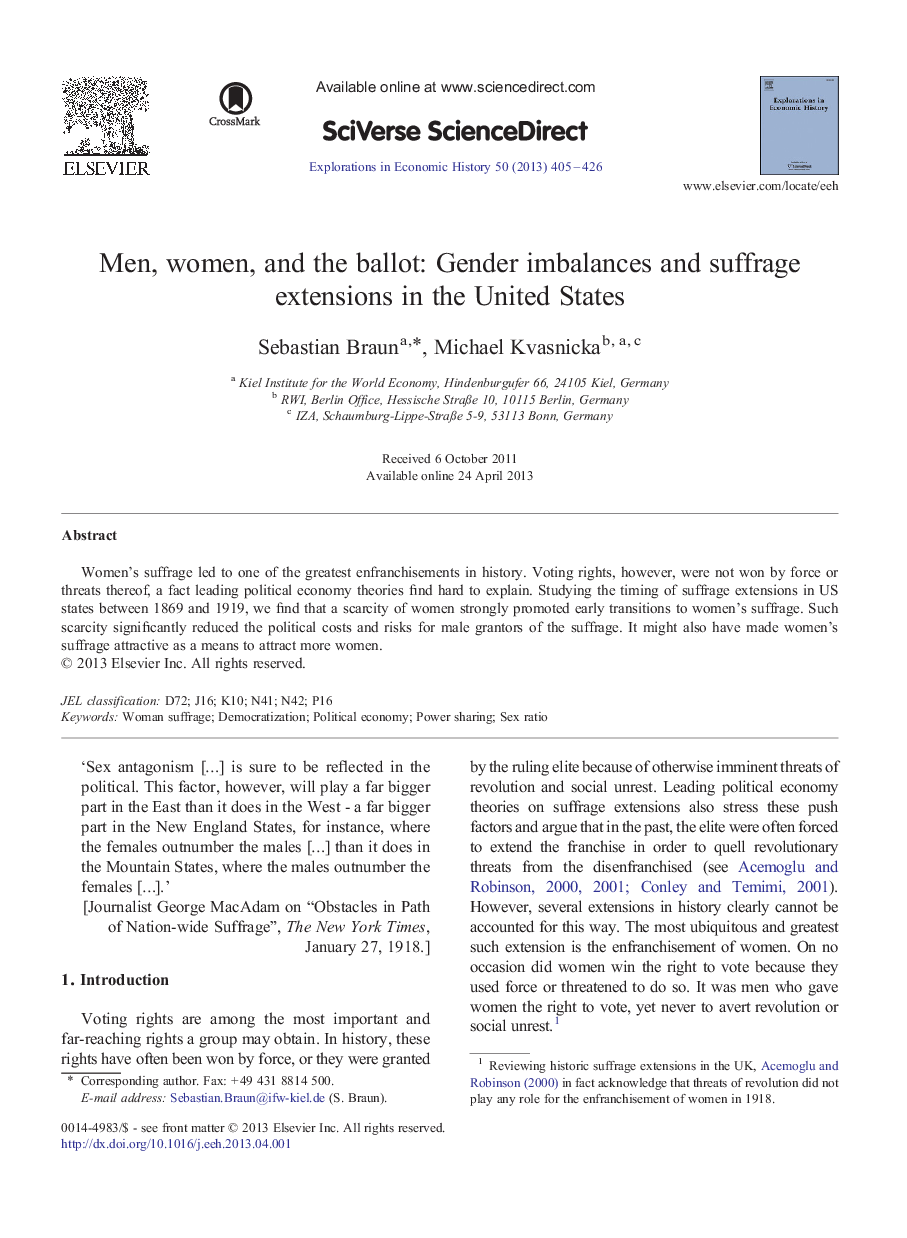| Article ID | Journal | Published Year | Pages | File Type |
|---|---|---|---|---|
| 5068868 | Explorations in Economic History | 2013 | 22 Pages |
Abstract
Women's suffrage led to one of the greatest enfranchisements in history. Voting rights, however, were not won by force or threats thereof, a fact leading political economy theories find hard to explain. Studying the timing of suffrage extensions in US states between 1869 and 1919, we find that a scarcity of women strongly promoted early transitions to women's suffrage. Such scarcity significantly reduced the political costs and risks for male grantors of the suffrage. It might also have made women's suffrage attractive as a means to attract more women.
Related Topics
Social Sciences and Humanities
Arts and Humanities
History
Authors
Sebastian Braun, Michael Kvasnicka,
